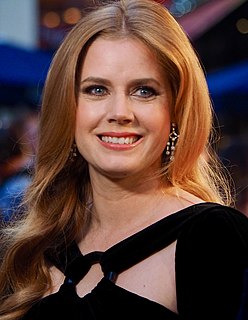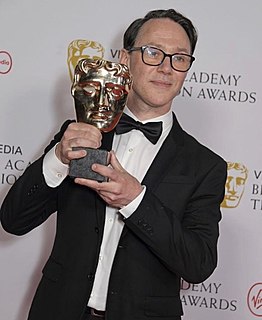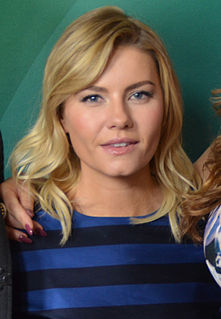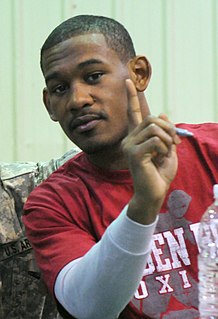A Quote by Wes Craven
I realized that I really, almost by accident, had fallen into a labyrinthine, very powerful paradigm for dealing with these things through genre films. And once I realized that and realized the power of it, and the fact that because horror films aren't, in general, studio products - studios back them sometimes, but they don't try to meddle too much, because they kind of don't want to sully their skirts - you have a lot of freedom.
Quote Topics
Related Quotes
Yeah, the first contract I signed, that was the first time I realized, Oh man, never mind, I don't want to do this anymore, but it was too late. I realized it was a bad thing because I wanted to try out for 'American Idol' and all these different things couldn't do that because I was in this contract.
Soon after 'Paruthiveeran' I was flooded with scripts that were almost the same as the award-winning film. I had offers from Malyalam, Telugu and Kannada filmmakers. But I had to be firm and in fact I realized that now I had to be more careful with my choice of films because I have raised the audience expectations.
I remember my son wanted to go to bed with his cowboy boots on, and we had this fight for like an hour. Then I realized that the only good reason I had for him not to do it is because I didn't want him to. There was really no other reason. And finally I said, "OK, fine." It was a great victory for me, because I realized it doesn't really matter.
When you're talking horror or sci-fi, you're working in a genre that has loosely certain thematic elements, or, you could even call them rules. But rules are there to be broken. I think that young filmmakers should go all the way back to the history of horror, from silent films like "Nosferatu", and through to today's horror films, so they understand the history of horror films and what has been done. Understand that, and then add something new or original.
It was like that class at school where the teacher talks about Realization, about how you could realize something big in a commonplace thing. The example he gave--and the liar said it really happened--was that once while drinking orange juice, he'd realized he would be dead someday. He wondered if we, his students, had had similar 'realizations.' Is he kidding? I thought. Once I cashed a paycheck and I realized it wasn't enough. Once I had food poisoning, and realized I was trapped inside my body.
When I realized that Reuben was a young man who really wanted to be taken seriously, because he was dismissed for being too good looking or because he had too much money - his character really came to life for me. I began to understand that, and see that a lot of people feel this way - misunderstood because of their talents or gifts or background.
Nine Inch Nails was an experiment with me in discipline. I realized when I was 23 that I had never really tried anything. Schoolwork came easy to me. I learned to play piano effortlessly. I was coasting. I realized that I was afraid to really, really try something, 100 percent, because I had never reached true failure.
Audiences are very sophisticated and they know the nuts and bolts of the genre - certainly with horror more than others I think. But they attract lots of people, they're much derided as a genre but people go and see them and they're not all dumb. There's some very clever horror films. Stephen King gets a lot of flack for not being a proper writer because he's a horror writer, but I think he writes some brilliant books. I think it's wrong to just bin it before looking at it.
I think the important thing about staying creative and staying sharp and original is not to look back too much, and to kind of look to where your vision is going now. But I have felt over the years a definite progression or arc from feeling guilty about what I had done with the first one, because certainly there was all that fundamentalist guilt that came pouring back in. Feeling like I'd done something horrible, "I'm a despicable person and I'm perverse," and all these things, to a sense of the power and the necessity, in a sense, of horror films and dealing with dark material.
The thing I've most realized is that when people come up to me and tell me how much my story means to them, how much it was inspiration for them to see me fight through and push through with my career, I realized love is real. And there's no greater feeling in this world, to give back and touch people.
It wasn't long after I began writing Star Wars that I realized the story was more than a single film could hold. As the saga of the Skywalkers and Jedi Knights unfolded, I began to see it as a tale that could take at least nine films to tell - three trilogies - and I realized, in making my way through the back story and after story, that I was really setting out to make the middle story.


































